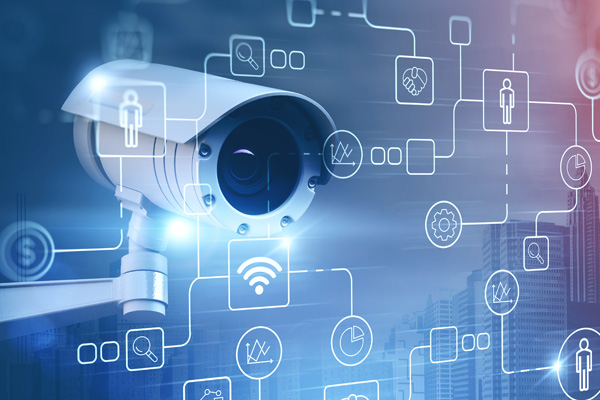Mobile culture has enabled an increase in personal, corporate, and governmental surveillance through digital devices. These daily intrusions can range from being on a simple phone or by tech-savvy individuals with wearable technology. There are several positive factors, such as empowering minorities, corroborating statements of the vulnerable, or evidencing dashcam distracted driver accidents, but because security cameras give individuals the ability to record every moment and meeting of their lives without needing to inform interlocuters, these are serious privacy infringements. On an individual consumer level, companies like Lorex (Security Cameras – Home Security Camera Systems | Lorex) are taking advantage of these desires to be safe by selling home security systems including wireless fusion for indoor and outdoor cameras. After the initial purchase and for a monthly fee, users can customize locations, lights and alerts sent to phones when human or animal intruders appear in real life. Lorex also extends mobile and cloud capabilities to remotely monitor for live view and playback. The Internet of Things (IoT) and smart homes already provide the infrastructure required to enable such video recording but a rise in software specializing in selling personal data as a product is trending. But who else is monitoring this information? How could it be used by corporations and governments? Can individuals buy this data to seek revenge on enemies? How would a criminal mind take advantage of this technology?

Digging deeper into this trend, the potential I could see for learning, as well as ecological preservation, was harnessed by a do-it-yourself (DIY) community. I was happy to see a strong DIY culture around using old cell phones as home security cameras instead of succumbing to corporate creations (How To use an old phone as a home security camera for free (youtube.com)) Inducing a maker mentality into home security greatly reduces privacy invasion issues as well as hones our sense of self reliance. Regardless of their corporate or DIY origins, while security cameras on mobile devices allow our visual sense to see in more than one place at the same time, they also serve to corroborate our own stories by relying on technology rather than people. Can we be our own witnesses? These are super human powers that serve to further isolate us as a species by promoting mistrust and misunderstanding of one another. Certainly this cultural phenomenon is due to the technological changes in modern society and the perceived need to protect oneself from ‘the other,’ the fictitious enemy that historical clashes of cultures seem to always want to create.
This is a really interesting post, Kirsten. It did a couple of things for me:
1. You opened my eyes a little more to the DIY potential that is out there. It is very easy for me to believe that there is no other way than big corporations who aren’t actually interested in watching out for me. Easy to believe that I must be part of a vast network without self-determination as far as technological interconnectedness. The idea of using old phones and creating your own security system is quite mind-blowing for me, ha! So that link was extremely valuable.
2. You got me thinking philosophically! Am I daily taking the angle that people are good, that we have much to contribute to each other rather than viewing people as threats against whom technology can create security? I really like where you went with this.
So do we want technology to put up fences and create security? Do we want technology to enable greater human connection (and I’m certainly not referring to the social media giants of the world)?
How will AI play a more significant role in digital surveillance and internet security? Do we WANT it to?
Massive thoughts. Thanks for your post!
Steve